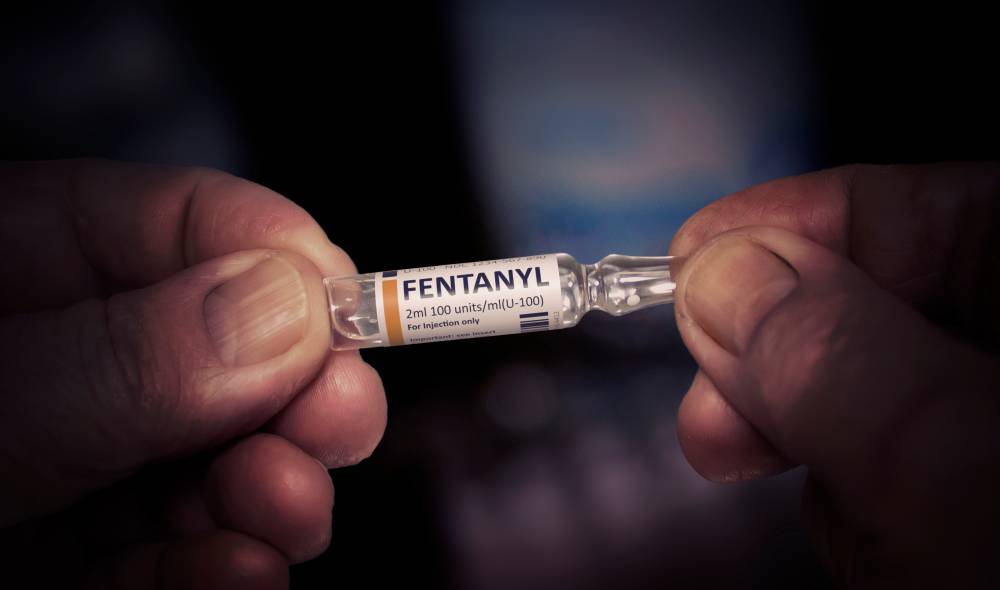China-US talks on fentanyl: What's at stake

BEIJING - The United States and China sit down in Beijing on Tuesday for their first talks in years on stemming the production of synthetic opioid fentanyl.
Washington has long accused Beijing of complicity in the deadly fentanyl trade that has ravaged communities across the country.
Beijing denies this, touting its "zero tolerance" drug policies and insisting the roots of the addiction crisis lie in the US.
Here's what will be at stake when Chinese and US officials sit down today:
What is fentanyl and where does it come from?
The United States is facing an epidemic of deaths caused by fentanyl, a synthetic opioid that is 50 times more powerful than heroin and much easier and cheaper to produce.
It is responsible for 100,000 overdose deaths a year, making it the leading cause of death of people aged 18 to 49, US officials have said.
The US Drug Enforcement Agency (DEA) has described China as "the main source for all fentanyl-related substances trafficked into the United States".
And while a report by the Congressional Research Service (CRS) last year noted that direct supplies of the drug from China had been stemmed by stricter controls from Beijing in 2019, it said the move had simply shifted the supply lines.
Instead of the drugs being supplied directly via international courier services, it said, chemical components are instead shipped from China to Mexico -- where they are then manufactured into fentanyl and smuggled across the border.
These chemicals are produced by everything from clandestine laboratories to "legitimate chemical and pharmaceutical companies", the CRS said.
Beijing, which previously insisted there is "no such thing as illegal trafficking of fentanyl between China and Mexico", has since promised to crack down.
In December, its foreign ministry said Beijing was "engaged in campaigns against fentanyl and its precursor chemicals".
Ministry spokesman Wang Wenbin said China had "cracked down on illegal and criminal activities involving the smuggling, illicit manufacturing, trafficking and abuse of fentanyl-related substances".
What has the US done to crack down?
Biden's administration has made the fight against fentanyl a priority.
In October, the US Justice Department slapped sanctions on over two dozen China-based entities and individuals alleged to be the "source of supply" for many US-based narcotics traffickers, dark web vendors, virtual currency money launderers and Mexico-based criminal organisations.
The group, which included a Wuhan-based company and a number of other firms based in Hong Kong and the mainland, was alleged to be responsible for the shipment of 900 kilogrammes of "seized fentanyl and methamphetamine precursors" shipped to the US and Mexico.
"We know that the global fentanyl supply chain, which ends with the deaths of Americans, often starts with chemical companies in China," US Attorney General Merrick Garland said.
China condemned the moves as part of a US campaign of "pressure and sanctions" against it.
What have the US and China agreed to?
China-US talks on drug control had long stalled in the face of some of their worst relations in years, with the powers clashing over everything from trade to human rights and the self-ruled island of Taiwan.
But following a summit between Presidents Joe Biden and Xi Jinping in San Francisco in November, Washington and Beijing agreed to restart talks.
That meeting saw Xi say that China "deeply sympathizes" with victims of fentanyl, and China has vowed to crack down.
Since then, a senior Biden administration official said last week, Beijing has shut down one company, blocked some international payments and resumed sharing information on shipments and trafficking.
Washington hopes to get China to take greater steps to tackle companies that manufacture the precursor chemicals needed to make the drug.
To that end, Tuesday's meeting will include high-level US officials from the State Department, Treasury, Department of Homeland Security and Justice Department.
China has not said who will attend the talks on its side.
How successful will they be?
The US has tried to remain clear-eyed about what it hopes to achieve, and cooperation on fentanyl is inextricably tied to the vicissitudes in relations between the two at-odds powers.
Following US-China talks in Bangkok last week, a senior Washington official said that cooperation on fentanyl between the two countries "needs to be continuous and ongoing".
"It's not just one snapshot in time."
And a report by the Washington-based Brookings Institution this week warned that Chinese criminal networks, some of which are tied to the drug trade, were expanding their international footprint.
"Beijing rarely acts against the top echelons of Chinese criminal syndicates," its authors wrote.
International pressure may push it to take steps to crack down on fentanyl, they added, but that action's "robustness is a function of its geopolitical orientation and bilateral relations." - Oliver Hotham / AFP
Download Sinar Daily application.Click Here!














